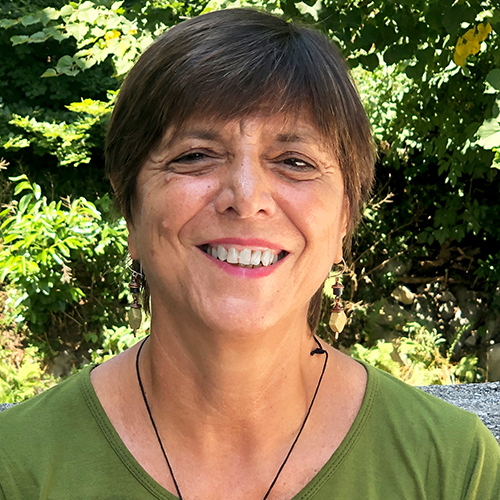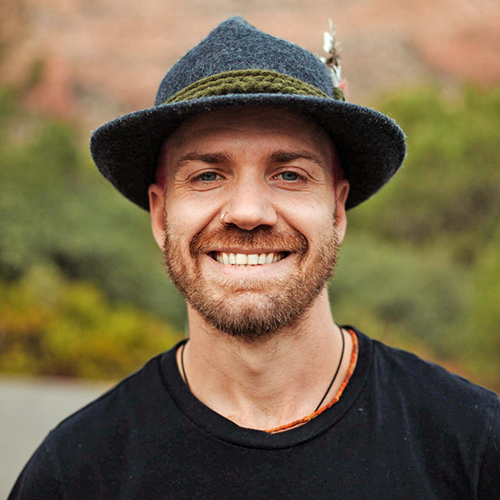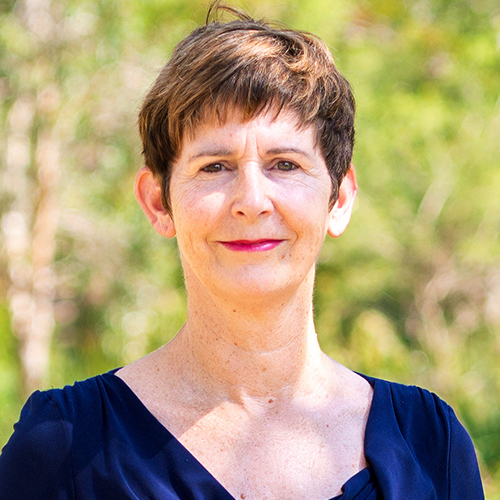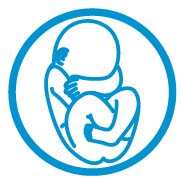 Pregnancy, Labour & Childbirth Online Course(s) & Continuing Education
Pregnancy, Labour & Childbirth Online Course(s) & Continuing Education
Access the latest clinical skills and research for Pregnancy, Labour & Childbirth for IBCLC/Lactation Consultants professional training. These Pregnancy, Labour & Childbirth online courses provide practice-changing skills and valuable perspectives from leading global experts. This Pregnancy, Labour & Childbirth education has been accredited for a variety of CEUs / CERPs and can be accessed on-demand, at your own pace.
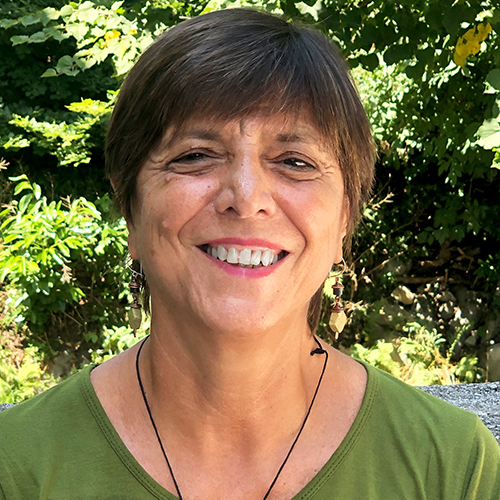

I am an Independent midwife, freelance midwifery teacher. I completed a BsC in Midwifery and a Master Degree at King's College and City University of London. I have worked as a community midwife and a in a Birth center in London at University college and at st Thomas hospital .I am a certified acupuncturist specialized in obstetric acupuncture. I am teaching nationally and internationally workshop for midwives on the use of acupressure for labour preparation, induction of labour and for pain relief. I am using acupressure whiting my clinical practice, providing antenatal classes and facilitating home birth. I strongly advocate the use of acupressure internationally as it will allow midwives to expand their role, becoming more complete and independent practitioner. Acupressure being drug –free and therefore having not harmful teratogenic effect, provides a much safer and satisfying childbirth experience as well as facilitating a more natural and less medicalized childbirth.
Acupressure is the application of pressure to acupuncture points. It originates in ancient traditional Chinese medicine, based on the concept of meridians or channels carrying QI , or energy, throughout the body. In good health Qi moves smoothly, through the channels, however excess, deficiency or blockage of Qi may cause pain and illness.
Acupressure is used as a technique for unblocking these occlusions, and restore good health. The stimulation of these points has effects on blood flow to the uterus, cervical dilatation movement of the baby, release of endorphins and oxytocin helping the mother to relax, promoting physical and emotional wellbeing. Acupressure can be used from 37 weeks to encourage beneficial hormonal responses for labour preparation and encourage the baby to move into an optimal position. Learn more about the results of recent research on the use of acupressure during labour and delivery and how acupressure can be incorporated into your care of clients.
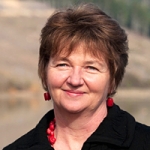
Acupuncture in pregnancy and the postpartum period. Use in New Zealand by midwives and in a hospital outpatients clinic

With a nursing background Debra gradu¬ated with a diploma in Acupuncture in 1989 while living in London. On returning to New Zealand build a practice using acupuncture for women’s health including pregnancy care. She commenced teaching acupuncture courses for midwives in 1997. This led to publications on the use of acupuncture and acupressure in obstetric practice including “The Essential Guide to Acupuncture in Pregnancy & Childbirth” in 2006, which has now been translated into German and French. Debra completed her PhD on the use of acupuncture in threatened miscarriage in 2014 through the University of Western Sydney and is currently the Director of Postgraduate Programmes for an online Masters course through New Zealand School Acupuncture and Traditional Chinese Medicine. She is also a clinical supervisor at a hospital antenatal acupuncture clinic in New Zealand, and lectures internationally on the use of acupuncture in obstet¬ric care.
A certificate in midwifery acupuncture has been available in New Zealand since 2007. This short course was specifically developed for midwives and run through an acupuncture school. Midwives successfully completing this qualification receive elective education points and may incorporate acupuncture into their midwifery practice. In June 2008, a maternity acupuncture service began operating within the Hutt Valley Hospital outpatient department, offering women access to free acupuncture care for pregnancy and postpartum period. This was the first and, to date, the only clinic of this type within a New Zealand hospital. This clinic is also run through The New Zealand School of Acupuncture and Traditional Chinese Medicine, with fourth year students providing treatment under supervision. This presentation reports on how acupuncture is used by the New Zealand midwives and in this outpatient’s clinic. It will also cover the current evidence base for acupuncture in pregnancy and the postpartum period.


Alixandra Bacon is a Registered Midwife and settler living and working in Vancouver, BC on the traditional and unceded territories of the Musqueam, Squamish, Tsleil-waututh and Tsawwassen nations. Alixandra is President of the Canadian Association of Midwives, Past President of the Midwives Association of BC, and clinical faculty at the University of British Columbia, Faculty of Medicine. Alixandra is passionate about creating equitable access to excellent sexual, reproductive and newborn midwifery services for everyone. Alixandra is the recipient of the UBC Alumni Builder Award.
Dusty Chipura is a Master Certified and AACC accredited ADHD Coach, specializing in supporting pregnant people with ADHD. She is passionate about creating equitable access to ADHD support services, especially for people from marginalized communities, and has created the first pregnancy-specific resource for people with ADHD in conjunction with Alix Bacon, the ADHD and Pregnancy Journal. Dusty offers private and group coaching, runs various online courses, and curates a virtual ADHD support space called the ADHD Studio. You can find her salty op eds on Twitter and Tiktok, @dustychipura.
ADHD impacts 1/30 females, and stimulants are among the most commonly prescribed medications during pregnancy, with an estimated 1% exposure prevalence. Research on ADHD and pregnancy is emerging and imperfect but shows that there are risks to the birther and fetus. Midwives need to be aware of the impacts of ADHD on pregnancy, and the risks and benefits of medication during pregnancy and lactation. Midwives, particularly those working in the continuity of care model, are well positioned to offer education and referrals regarding non-pharmaceutical supports and strategies for managing ADHD in pregnancy.

View Details / Enroll
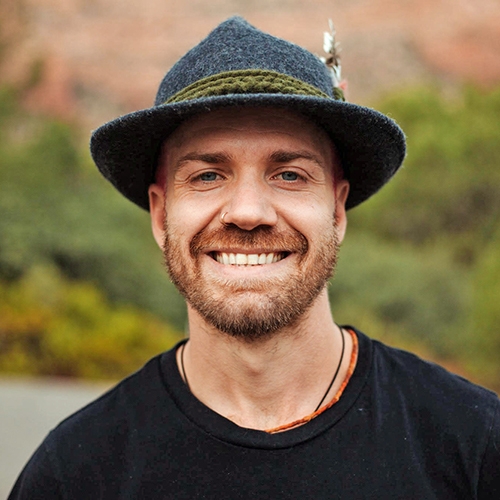

Nathan Riley, MD, is an OBGYN and hospice physician in Louisville, KY. He also works remotely as a telehealth palliative care physician for Resolution Care. He is also the host of the Obgyno Wino Podcast (link to: www.obgynowino.com), and, later this year, he will be launching a biodynamic wellness service to address the multitude of women's health issues for which Western medicine is not equipped to manage (link to: www.belovedholistics.com). When he's not connecting with his patients, you can find him mountain biking, climbing, gardening, or tossing his daughter dangerously high in the air.
Attendees will come to understand the underlying physiology behind antenatal surveillance methods, including non-stress testing, biophysical profiling, amniotic fluid assessment, and fetal Doppler velocimetry. Many pregnant families have difficulty understanding the nature of antenatal fetal surveillance, and have even more challenge deciphering the results. This lecture will help practitioners effectively counsel pregnant patients on result interpretation and provide tools to help families make educated decisions based on the antenatal fetal surveillance results.

View Details / Enroll


Dr. Britta Bushnell (she/her) is author of Transformed by Birth, host of the podcast Transformed, veteran childbirth educator, celebrated speaker, mythologist, wife and mother, and specialist in childbirth, relationship, and parenting. For over 20 years, Dr. Bushnell has worked with individuals and couples as they prepare for the life-changing experience of giving birth. Her work with parents has been enriched by her doctoral work in mythology and psychology, her years spent as a co-owner of Birthing From Within, as well as her dedicated study of solution-focused brief therapy, storytelling, and skills for supporting intimate relationships while parenting.
Britta is an engaging teacher, speaker, and presenter. Whether addressing a room of expectant parents, new mothers, or seasoned birth professionals, Britta has a way of captivating and inspiring them all. She has presented at conferences such as DONA International, MANA, ICEA, and Lamaze. Additionally, Britta has been featured on several popular podcasts including Informed Pregnancy, Birthful, and Atomic Moms. In 2016, in recognition of her transformative childbirth classes, Britta was awarded "Educator of the Year" by the Southern California Doula Association (DASC).
Topic: Awakening the Parent: Are You Supporting or Sabotaging Your Client’s Transformation? - [View Abstract]
Beneath the surface of every labor and delivery room interaction between physicians, nurses, and patients (as well as their partners) vibrate the pressures of power. Who is in charge? Regardless of the stated beliefs or legal truth about who IS in charge, the dance between the characters in the labor room often plays out archetypally. Archetypes are a recurrent symbol or motif found in literature, art, or mythology that live within the unconscious influencing how individuals behave, think, and feel. While many archetypal energies are possible during labor, the dominant archetypal energies active in a labor room tend to vacillate between that of Caretaker, Orphan, Ruler, Hero, Innocent, and Warrior. Nurses, often drawn to the career to help others, connect with the Caretaker archetype. However, due in part to hierarchical structures within the hospital setting, nurses can be left feeling unseen, undervalued, or powerless activating the Orphan archetype. Comparable patterns can be observed in obstetricians with the Ruler and Hero and in parents with the Innocent and Warrior archetypes. Without consciousness of the power dynamics between these archetypal energies, satisfaction in both the process and outcome is often fleeting for parents and can lead to burnout in professionals. Greater understanding of the needs of each activated archetype provides individuals needed guidance in how to better navigate labor room power dynamics and why doing so matters profoundly.
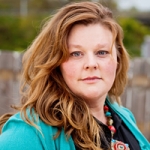

Demetria Clark is the Director of Heart of Herbs Herbal School founded in 1998, www.heartofherbs.com. She has been an internationally known herbalist and aromatherapist for over 20 years. Training thousands of practitioners and working with organizations all over the world to promote wellness and self-sustaining careers.
For health care officials aromatherapy is becoming a tool many clients and patients are relying on, learn what can be used to support clients and patients safely. Often with any sudden popularity with a modality unsafe practices can be found and safe information needs to be available to health practitioners. Learn what essential oils and aromatherapy is and how you can explore the health benefits of this modality with your clients.
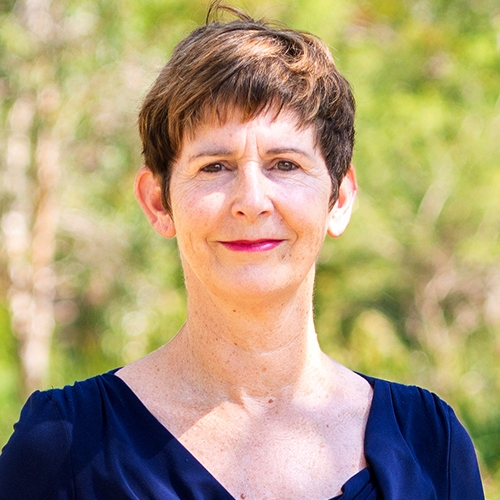

Professor Emeritus Jenny Gamble’s has been a midwife since 1983. She and worked clinically for 17 years in a variety of positions and models of care, several Australian states, and overseas. She has a strong international profile in maternal and newborn research with specific expertise in perinatal mental health. She is a well known for her professional leadership with health services, the midwifery profession and collaboration with consumers.
There is growing evidence that fear of childbirth (FOC) is an issue of importance for women’s emotional and psychological well-being. For some women symptoms are severe and disabling. A previous traumatic birth experience, sexual abuse, and traumatic childbirth stories of others and media may contribute to fear of giving birth.
Fear of childbirth has negative implications for women’s experiences of pregnancy and birth including longer labour, increased likelihood of augmentation of labour, emergency caesarean section, and elective caesarean section.
Access to services for women with fear of childbirth appears to be inequitable and various approaches and interventions are used.
Assessment tools are available and readily implemented in practice to identify women fearful of childbirth and the severity of fear feelings, however a trauma informed approach to talking with fearful women is essential to discover the factors related to the fear and the commencement of a therapeutic relationship.
There is some evidence about interventions to help women fearful of childbirth. The webinar will assist midwives and nurses working in maternity know how to respond to fearful women and provide practical information about what to do, what to say and what not to say to support women experiencing fear of childbirth.

View Details / Enroll
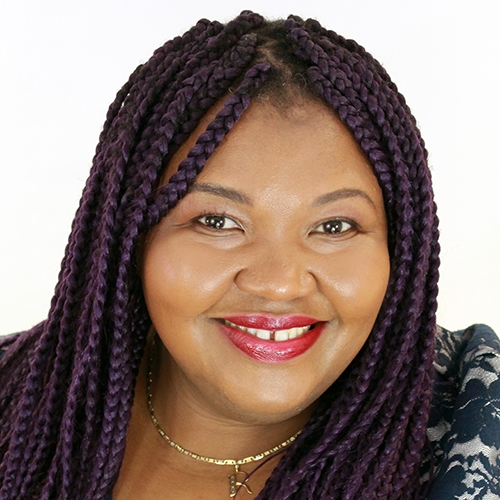
Attachment Begins in Utero: The Vital Role of Facilitating Parental-Foetal Bonding

Dr. Ruth Oshikanlu MBE is a multi-award winning nurse, midwife and health visitor. A nurse entrepreneur, consultant, leader and parenting expert, she is passionate about supporting vulnerable children and their families to reduce health inequalities and improve their life outcomes. Her previous roles include: HIV specialist midwife, Family Nurse at one of the first pilot sites of The Family Nurse Partnership intensive home visiting parenting programme for vulnerable families, and Nurse Leader of The Lewisham Young People’s Health and Wellbeing Service.
Ruth is a Pregnancy Mindset Expert and supports pregnant women who have had assisted conception or previous pregnancy loss. She is the author of Tune In To Your Baby: Because Babies Don’t Come with An Instruction Manual.
Ruth is a Queen’s Nurse, Fellow of The Institute of Health Visiting, Royal College of Nursing and The Royal Society of Arts. She is the recipient of several national healthcare and business awards; a regular columnist and has published several feature articles in numerous national nursing and healthcare journals.
Ruth was appointed a Member of the Order of the British Empire (MBE) in the New Year 2019 Honours List for being an Ambassador for the Health Visiting Profession and for services to Community Nursing, Children and Families. She is a Churchill Fellow and was awarded an honorary doctorate degree from London South Bank University in November 2019.
Topic: Foetal Programming and the Impact of Stress - [View Abstract]
Parental-foetal attachment is the emotional attachment between an expectant parent and their foetus and is a complex concept. Midwives have a vital role in promoting parental-foetal attachment. The presentation will outline the importance of promoting parental-foetal attachment and how expectant parents can connect with their babies in utero. This presentation will discuss how expectant parents have been supported during the pandemic to manage their fear, anxiety and stress, parental and partner separation.
It will conclude with the use of the items of antenatal attachment scales to discuss and suggest ways of promoting antenatal attachment to expectant parents. By collaboratively working between midwives, midwives can identify those that may be at risk of poor parental-foetal attachment, and ensure that coordinated, consistent and seamless care is provided for these families.

View Details / Enroll
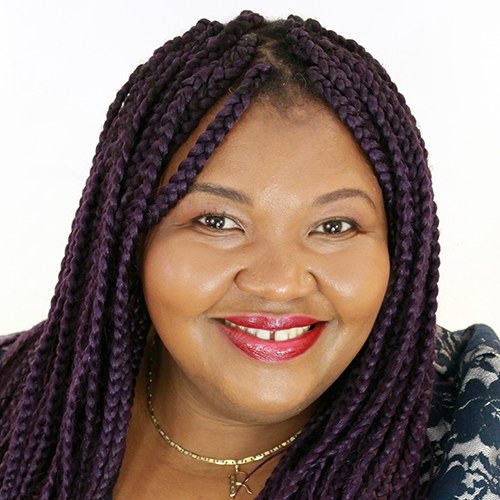
View Details / Enroll
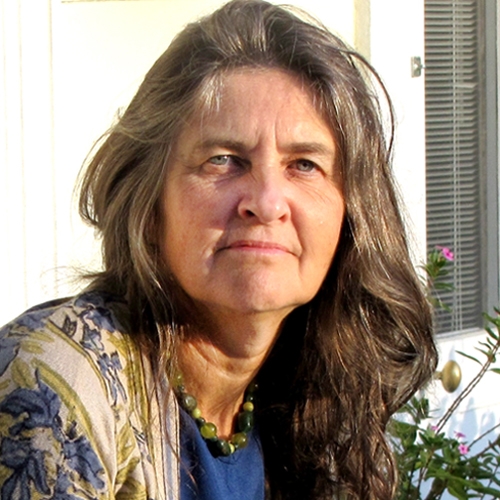
Avoiding Another Friedman Curve: Are We Ready to Relax Timing Limitations in Vaginal Breech?

Betty-Anne Daviss MA, RM has practised as a midwife for over 40 years on various continents, and as a researcher in the social sciences and clinical epidemiology, for over 25 years. An Adjunct Professor in Ottawa, Canada, she has taught since the 1980s about the politics of gender and health. She has worked towards midwifery legislation in Canada and the U.S. and acted as the project coordinator for the Safe Motherhood Initiative of the International Federation of Gynecology and Obstetrics (FIGO). Engaged with the SOGC when it first began to reintroduce vaginal breech birth to Canada, she has helped to organize several breech conferences and was the co-principal investigator and principle writer for the Frankfurt study comparing vaginal breeches born with the mothers upright vs on their backs (2017). She was a co-editor of Birth Models That Work (2009) and is principal editor of Speaking Truth to Power: Childbirth Models on the Human Rights Frontier (forthcoming 2019).
Normal birth has been plagued for 67 years by attempts to make it shorter based on arbitrary timelines. A systematic review of cervical patterns of low risk women have called into question the universal application of clinical standards based on an expectation of linear labour progress in all women. The WHO has affirmed that Friedman’s Curve of 1954-55 and the one centimetre an hour dilation threshold should no longer be used to identify adverse outcomes, as it is not evidence-based.
Now, in the era of fear of vaginal breech, attempts to gauge the safe length of second stage in vaginal breech is based on research in hospitals where induction and augmentation are widely used and the amount of time permitted for second stage has already been artificially cut off by assumptive hospital protocols.
The largest sample of upright vaginal breech birth (UVBB) to date was done in a Frankfurt hospital that uses protocols that do not arbitrarily limit second stage but nevertheless produce good outcomes. This suggests that hospitals that use very strict timelines may be producing a self-fulfilling prophecy of what is “normal” that imposes time limits not necessarily required to keep birth safe. Manoeuvres used to rectify problems, such as fundal pressure and “the Crowning Touch” will be demonstrated at this presentation—with their indications based on the failure of the physiological cardinal movements of the breech to transpire after several contractions, or when concerns about the fetal condition or maternal stamina arise. Reviewing problems with how proposed timelines in the breech have been developed and their shortcomings, it will be argued that focus should be on the condition of the fetus and mother rather than the clock.

Awakening the Parent: Are You Supporting or Sabotaging Your Client’s Transformation?

Dr. Britta Bushnell (she/her) is author of Transformed by Birth, host of the podcast Transformed, veteran childbirth educator, celebrated speaker, mythologist, wife and mother, and specialist in childbirth, relationship, and parenting. For over 20 years, Dr. Bushnell has worked with individuals and couples as they prepare for the life-changing experience of giving birth. Her work with parents has been enriched by her doctoral work in mythology and psychology, her years spent as a co-owner of Birthing From Within, as well as her dedicated study of solution-focused brief therapy, storytelling, and skills for supporting intimate relationships while parenting.
Britta is an engaging teacher, speaker, and presenter. Whether addressing a room of expectant parents, new mothers, or seasoned birth professionals, Britta has a way of captivating and inspiring them all. She has presented at conferences such as DONA International, MANA, ICEA, and Lamaze. Additionally, Britta has been featured on several popular podcasts including Informed Pregnancy, Birthful, and Atomic Moms. In 2016, in recognition of her transformative childbirth classes, Britta was awarded "Educator of the Year" by the Southern California Doula Association (DASC).
Topic: Awakening the Parent: Are You Supporting or Sabotaging Your Client’s Transformation? - [View Abstract]
Becoming a parent is a process of profound maturation, one that requires expectant parents to grow into decision-makers for their growing families. Teachers and experts in the childbirth and parenting fields naturally want to share their hard-earned wisdom with expectant parents. However, doing so without awareness may be unwittingly reinforcing the idea for new parents, that experts “out there” hold the knowledge needed to be make decisions in the best interest of their growing family. This effectively keeps expectant parents in the energetic position of the child (the one who receives guidance) rather than supporting them to grow into the position of the parent (the one who makes decisions and acts). If we want to help the expectant parents grow into autonomous and self-guided parents, educators must practice in such a way that inspires the growth needed in the parent rather than simply fill them with information. Flipping from the authority of teacher and expert to mentor or guide, reduces the hierarchical nature of the relationship and can help awaken the inner authority of the parent-to-be. Understanding this dynamic along with a few basic tools can help you better support your clients as they stretch into parenthood.



